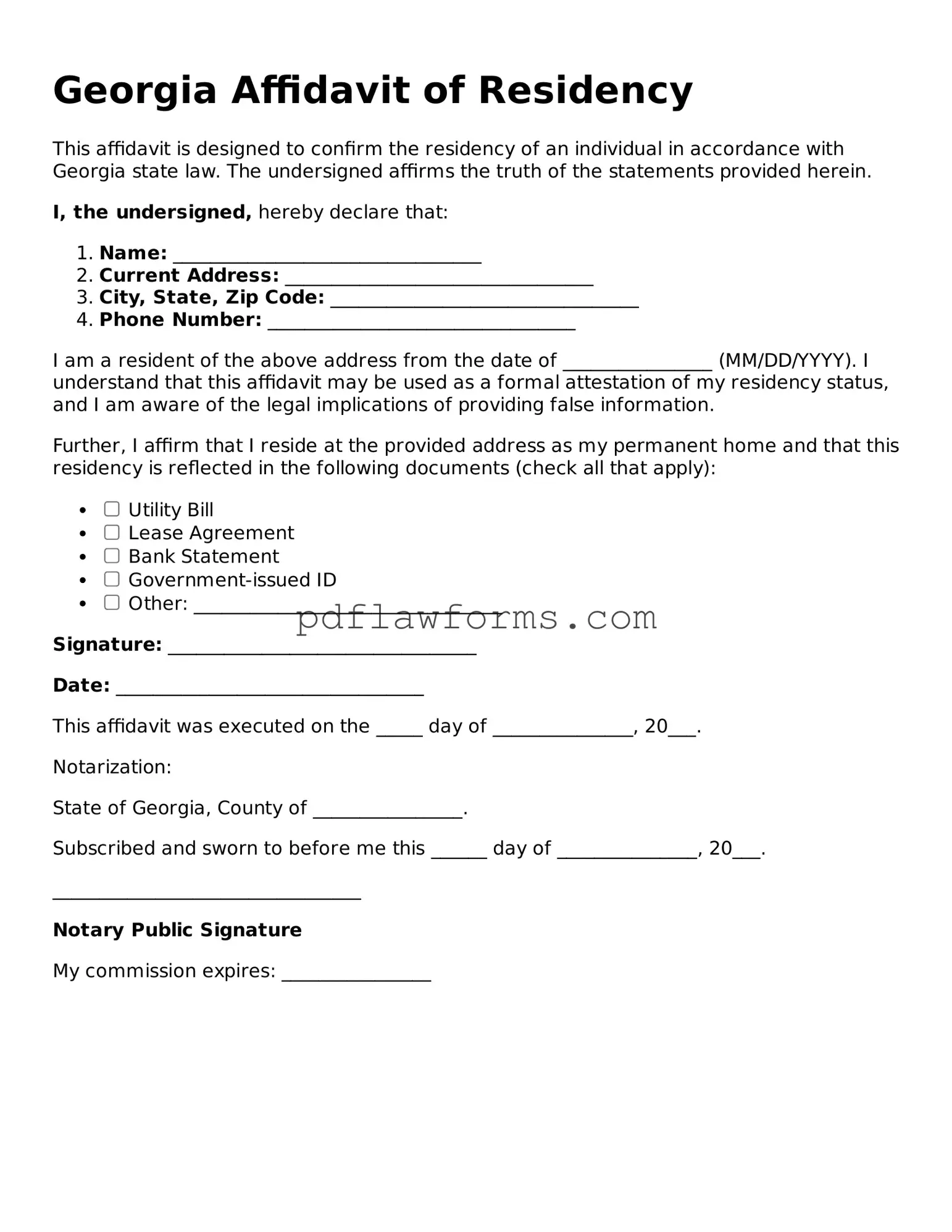Affidavit of Residency Form for the State of Georgia
The Georgia Affidavit of Residency form serves as a legal document that verifies an individual's residence within the state of Georgia. This form is often required for various purposes, including enrollment in schools and obtaining certain government benefits. Understanding its significance can streamline processes and ensure compliance with local regulations.
To get started on filling out the Georgia Affidavit of Residency form, click the button below.
Make My Document Online

Affidavit of Residency Form for the State of Georgia
Make My Document Online
You’re halfway through — finish the form
Edit and complete Affidavit of Residency online, then download your file.
Make My Document Online
or
⇩ Affidavit of Residency PDF
